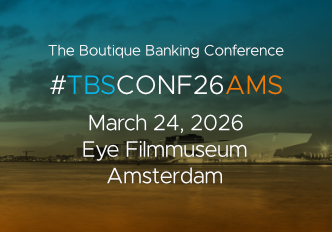
Insights & Opinions
Visa's Innovations: Enhancing Travel and Payment Experiences Worldwide
Tue, 13 Aug 2024


Foreign travel is all good fun unless you return home to a nasty surprise in the form of unexpected transaction fees on your account! We caught up with Jos van de Kerkhof, Country Manager Netherlands at Visa, to hear how Visa's innovations enhance travel and payment experiences worldwide.
These days, Visa is more than just a credit card brand. Nowadays, we also have Visa Debit. Are consumers becoming accustomed to it, and how do they assess its advantages compared to other debit brands?
Historically, people have associated travelling abroad with needing a credit card to make payments. This is still generally the case. Wherever you go, paying with Visa is the best method, as it's widely accepted worldwide. However, the change comes with the fact that Visa is no longer just a credit card, now also in this part of the world it is a debit card as well.
Visa Debit allows you to make payments directly from your bank account, just like you do at home. This means you don't necessarily need a credit card when you travel abroad. As long as you have a Visa Debit or any other type of Visa card, you can make purchases at over 130 million places around the world that accept Visa cards. And online of course.
Summer is here! What are the current trends in holiday spending that you have observed over the past few years? How have payment methods evolved?
There are significant differences in holiday booking trends between countries. For example, in Belgium, summer holidays are booked earlier, before the start of the new year. In the Netherlands, holiday bookings take place around January and February, while Germany has its own distinct trends. It's fascinating to see how these habits vary from country to country.
There has been a general shift away from booking travel through local travel agents. When I look at the Dutch market, I notice that there are few physical travel agency locations left. The majority of travel is now booked online.
Package deals are becoming increasingly popular, where travellers can book a combination of hotel, flight, and car rental in one. Also, many people, especially from the Netherlands, take road trips south through Belgium or into Germany and then go camping at sites without pre-arrangement. There is also a growing desire for interregional travel, especially after COVID.
During the COVID-19 pandemic, air travel significantly decreased, especially to distant destinations, especially those in Asia that had not fully reopened at the time. However, we can now see that those effects have essentially disappeared. People are now travelling just like they did before the pandemic, going on holidays to places like Bali or taking vacations to the US, which I did last year. Overall, we are seeing a lot of travel happening again.
And they get to pay now with a debit card.
Indeed, they can now make their payments with a Visa Debit card. That's a huge benefit.
Would you consider that a major shift in the way payment methods have evolved over the past few years?
Two things need to be distinguished. Firstly, the evolution of payment methods themselves. For instance, when travelling to the US for personal reasons, I might consider opening an account with a travel-oriented bank or provider as I will be spending a lot of dollars. This change in payment methods during travel is providing customers with more options.
Secondly, more seamless payment methods are now available, which are changing how we make payments. During our visit to the US, we experienced that Uber for transportation has become a standard way to get around, which is quite different from what we are used to. Now, there are payment products that are directly linked to your bank account, allowing you to make purchases that are automatically withdrawn, providing a significant advantage. This enables you to spend just like you do at home, with the same visibility on your bank accounts and control over spending. It offers more control and insight.
In addition, credit cards are still heavily used for travel, as many people either prefer not to deal with their financial situation until they return home or for the sake of convenience. And credit cards will still be necessary for holidays in the future as both Credit and Debit payment methods coexist in many markets across Europe and the world. Holiday travel still heavily relies on credit cards in most of these markets.
How does Visa work with financial institutions and fintech companies to manage the high volume of transactions during peak holiday times?
Our systems are up and running, and we have one of the world’s highest levels of cyber resilience. There is essentially no downtime. VisaNet can scale to up to 65,000 transactions per second, and currently we do 8500 transactions per second on average. Therefore, Visa systems have ample room to grow during peaks and lows. The system is capable of handling that.
"Of course, our reliability also extends to our clients. Our clients already know that we are reliable and are happy to work with them to ensure their systems keep running. Most other players in the industry have robust systems in place that they monitor very carefully to ensure their reliability.”
We also offer fallback solutions. So, if, for whatever reason, the system of one of the banks is down, they can rely on us to act on their behalf. We can authorise or decline a transaction based on their usual criteria. In the past, those systems were basic and rudimentary, with the same standard limit on transactions of a few hundred euros for every cardholder. Now, we use a lot of AI and other advanced technologies to create a much smarter version that we call "Smarter Stand-In Processing." This new system mimics my individual behaviour and the bank's behaviour on my account much more accurately. It considers how I typically behave and also authorises or declines transactions as the bank would, based on my behaviour. This smarter system is more efficient and allows for continuity during potential outages.
Integrating various FinTech companies into your business offers numerous benefits for holidaymakers, ranging from improved FX deals to simplified cross-border transactions. Can you provide examples of how Visa makes life easier for people travelling abroad?
The lives of people abroad could improve with a seamless and widely accepted payment method. If a place accepts cards, they likely also accept Visa, making it highly convenient for people. We are also expanding capabilities in the FX area, such as Visa's cross-border solutions through Currency Cloud. This allows banks and fintechs to hold, spend, and collect different currencies.
During my trip to the US, I could exchange my money for dollars at a favourable rate. With these dollars, I can conveniently make purchases locally. Additionally, when my trip ends, I can exchange my remaining dollars for euros at an advantageous rate. This process provides me with certainty and convenience. It also eliminates the need to access cash for the same transactions locally.
And it doesn't affect the revenues of the home bank, your issuing partner?
Not necessarily. A currency conversion is still taking place, so they can still generate money on those transactions.
What innovations in payment technology could transform the holiday shopping experience in the near future?
I believe that tokenisation is a significant advancement. It will make a large number of transactions much safer. Online transactions, especially in the consumer segment but also in many other sectors, stand to benefit greatly from tokenisation. In general, tokenisation has led to up to 50% decrease in fraud for tokenised transactions. This represents a significant improvement for consumers, merchants, acquirers, issuers, and anyone operating in this area. It's a substantial enhancement toward making transactions more secure.
When you look at typical purchasing situations, especially in the travel sector, it's clear that things are changing. How you pay for your sandwich on a plane, for example, can be done in numerous ways. Currently, these transactions are processed through the terminal and buffered while flying, which is a convenient method.
Fortunately, now, these accepted payment methods on a plane include Visa Debit, which is making a mark in this space.
When you're on a plane, you could create a profile and pre-order items like you do at modern restaurants. We could use QR codes for this. Most newer planes already have Wi-Fi you can connect to it. Most newer planes already have Wi-Fi. This would make the ordering process on the plane more efficient, eliminating the need for flight attendants to walk through the aisle to take orders. That person will just be dropping off whatever you've ordered. This will make things easier for travellers and increase the potential revenue for airlines from these sales. We'll be seeing this more often over time.
There are also general trends in retail that will also affect our holiday experience. We will see these changes even at the airport. Some supermarkets offer seamless experiences where you check in as you walk into the store, and the system recognises you. They do a pre-authorisation when you enter, and if you take something and walk out, the pre-authorisation is turned into a full authorisation. Then, the amount is charged to your Visa Debit, Credit or another form of payment. These are advances in technology, possibly even Bluetooth-based, which we will likely see more of across all retail, not just in one region but around the world.
Join us at The Banking Scene Payments BBQ on September 17 in De Warande, Brussels, for sizzling sessions on "Strategies for Future-Proof Payments", followed by smoking hot networking and delicious BBQ delights.


